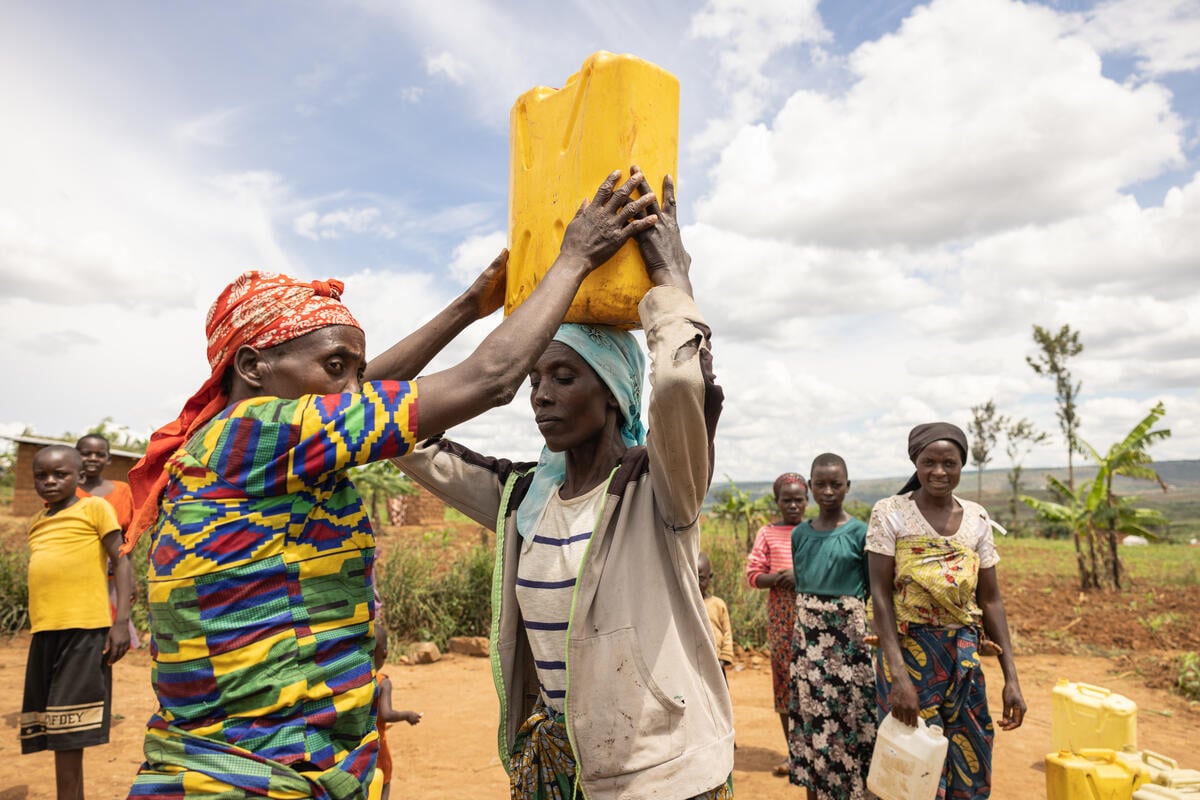Repatriation of 160,000 Eritreans resumes after four month halt
Repatriation of 160,000 Eritreans resumes after four month halt
ASMARA, Eritrea, Oct. 22 (UNHCR) - In one of the largest operations of its kind, the repatriation of more than 160,000 Eritrean refugees resumed Saturday with the departure of a truck convoy carrying 433 refugees to a transit centre in western Eritrea, the U.N. refugee agency said Monday.
The transfer began in May but was halted in early July after heavy rains cut off roads from the camps in eastern Sudan and floods hit the Gash Barka region of western Eritrea, the destination for a majority of the refugees. Almost 21,000 refugees had returned home with UNHCR assistance when the operation was halted.
Because some of the refugees have no homes to return to after living in exile for decades, local authorities will give families up to two hectares of arable land in an effort to help them reintegrate. Every returning family will also receive a cash grant as well as a two-month food package, household supplies, and agricultural goods.
As many as 500,000 civilians fled to the Sudan during a bitter 30-year war following Ethiopia's annexation of Eritrea in 1962. After Eritrea peacefully seceded from Ethiopia in 1993 and political conditions improved in the region, UNHCR began to register the refugees as a first step towards their eventual return to their homeland.
Saturday's 20-truck convoy departed from Shagarab camp south-west of the town of Kassala on Sudan's eastern border with Eritrea. The returning refugees were taken to a transit centre in the western Eritrean town of Tesseney for an overnight stay, the U.N. agency said.
Eritrean authorities will register the returning refugees and provide a basic course in landmine awareness before transporting them to their final destinations, according to the U.N. refugee agency.
The agency said that nearly 15,000 refugees currently living in seven campsites have signed for repatriation. Refugees in seven other sites yet to be determined will also be targeted, the agency said.
The agency expects to aid the return of 40,000 more refugees before the end of the year in an effort to reach its target of 62,000 voluntary returns in 2001. The repatriation of the Eritrean refugees is expected to continue to the end of 2002, thereby bringing one of the longest chapters in the history of the refugee programme to a successful close.







